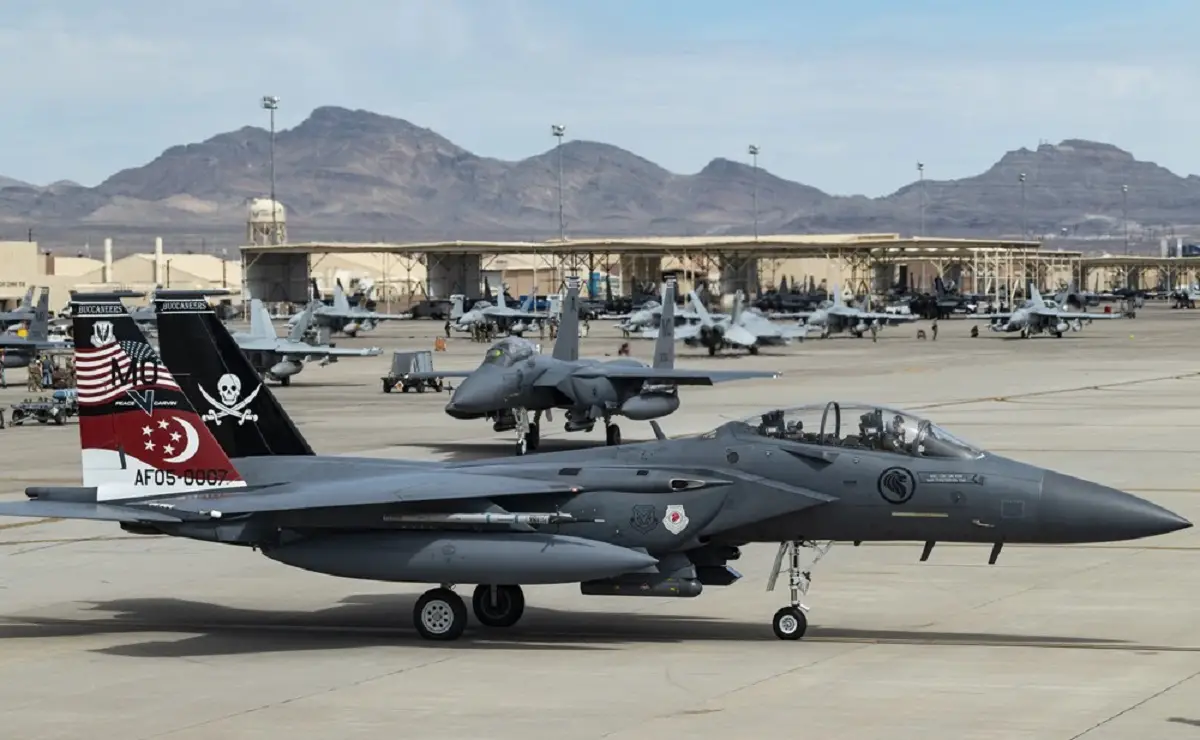The Department of Defense has entered into a bilateral, non-binding Security of Supply Arrangement (SOSA) with the Republic of Singapore. The arrangement will enable both the U.S. and Singapore to acquire industrial resources they need to quickly meet defense requirements, resolve unanticipated disruptions that challenge defense capacities, and promote supply chain resiliency. The SOSA was signed on December 5, 2023 by Dr. LaPlante and Mr. Melvyn Ong, Permanent Secretary (Defence Development), Singapore Ministry of Defense (MINDEF) after details of the SOSA were discussed at the 18th Annual Defense Cooperation Committee (DCC) meeting held in Washington, DC last month. Also, Secretary of Defense Lloyd J. Austin III and Singapore’s Minister for Defence Ng Eng Hen met in Washington, DC on December 6, and discussed the strengthening of the U.S.-Singapore partnership and recent efforts to deepen defense cooperation between both nations through the establishment of the SOSA.
Under the arrangement, the U.S. and Singapore agree to exchange reciprocal priority support for goods and services that promote national defense. It also creates a streamlined mechanism for DoD and Singapore’s MINDEF to request expedited industrial resources to resolve unanticipated supply chain disruptions affecting national security requirements. SOSAs are an important mechanism for DoD to strengthen interoperability and are a proven supply chain tool for enabling a resilient, global defense ecosystem for the U.S. and key partners and allies. Singapore is the seventeenth SOSA partner of the United States. Other SOSA partners include Australia, Canada, Denmark, Estonia, Finland, Israel, Italy, Japan, Latvia, Lithuania, the Netherlands, Norway, Republic of Korea, Spain, Sweden, and the United Kingdom. The Office of the Assistant Secretary of Defense for Industrial Base Policy (OASD (IBP) works with domestic and international partners to forge and sustain a robust, secure, and resilient industrial base enabling the warfighter, now and in the future.

This bilateral pact, falling under the ambit of Declarations of Principles for Enhanced Cooperation in Defense Equipment and Industry, marks a significant step in fostering mutual interdependence of supplies vital for national security. The SOSA framework empowers both nations to expedite delivery for their defense contracts and orders, thus fortifying their readiness during peacetime, emergencies, and conflicts. Under the SOSA agreement, the DoD gains the prerogative to prioritize delivery for its contracts and orders from companies in Singapore. In turn, Singapore holds the same privilege for its contracts with U.S. firms. Such reciprocal industrial priority systems not only enhance interoperability but also establish a robust assurance of timely supply during critical junctures. The Defense Priorities and Allocations System (DPAS) forms the cornerstone of the DoD’s mechanism to provide priority support, ensuring an effective and swift response to defense needs.
Crucially, participating firms from both nations are encouraged to adhere to voluntary government-industry codes of conduct. By committing to these codes, companies pledge to exert every reasonable effort to extend priority support. Their participation serves as a testament to their reliability in catering to the defense needs of the respective nations and their contractors. The list of participating foreign firms, the Security of Supply Arrangements, and details about the codes of conduct employed are integral components of this collaborative endeavor, fostering transparency and accountability. This latest agreement between the DoD and Singapore’s Ministry of Defence underscores a commitment to reinforcing security alliances and ensuring the unimpeded flow of essential defense resources, setting a precedent for robust international collaboration in the realm of national security. As the world grapples with evolving threats and challenges, such cooperative agreements stand as a testament to the dedication of nations to bolster their defenses and safeguard mutual interests.
















